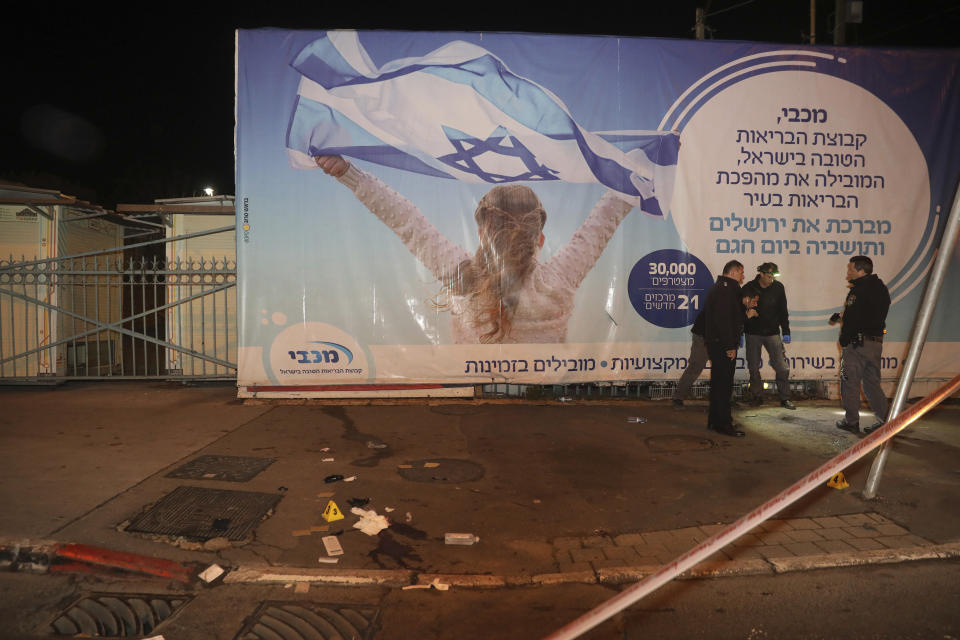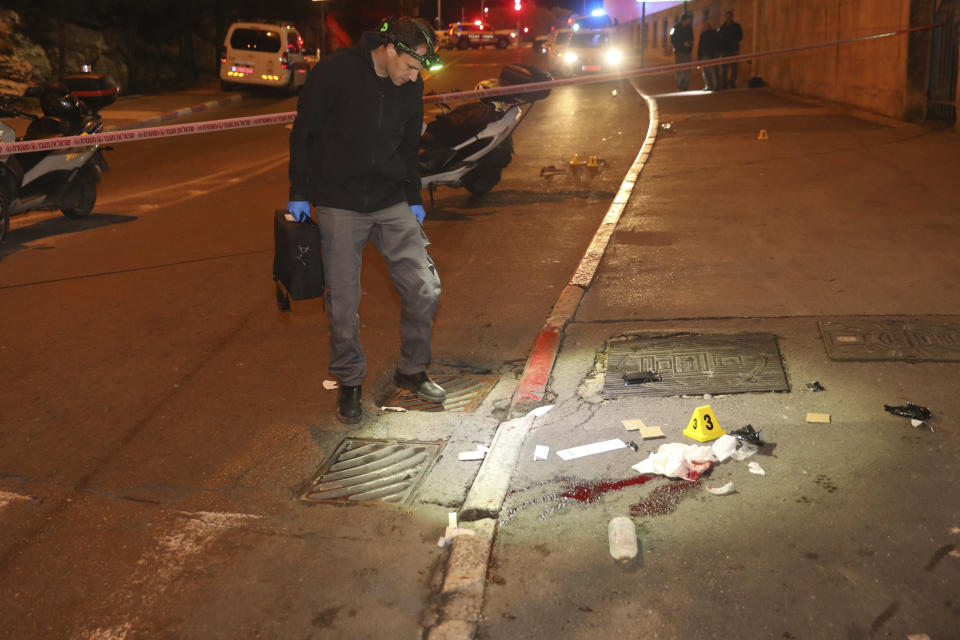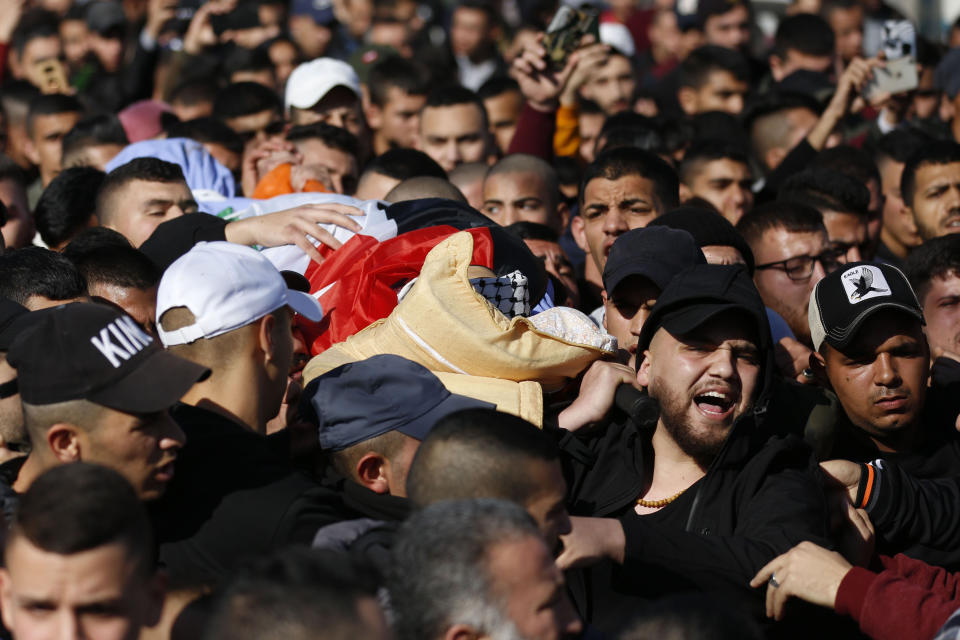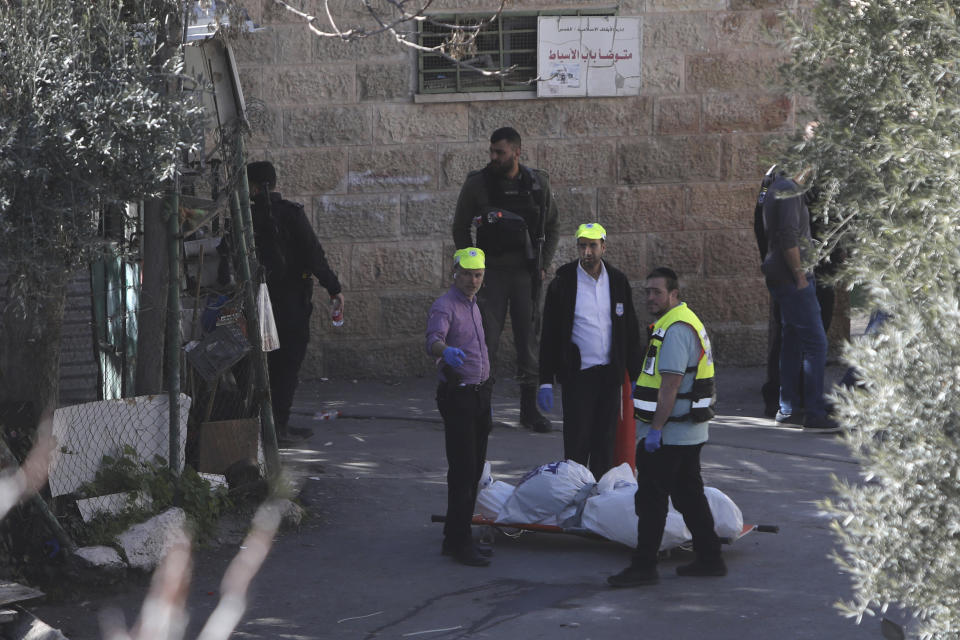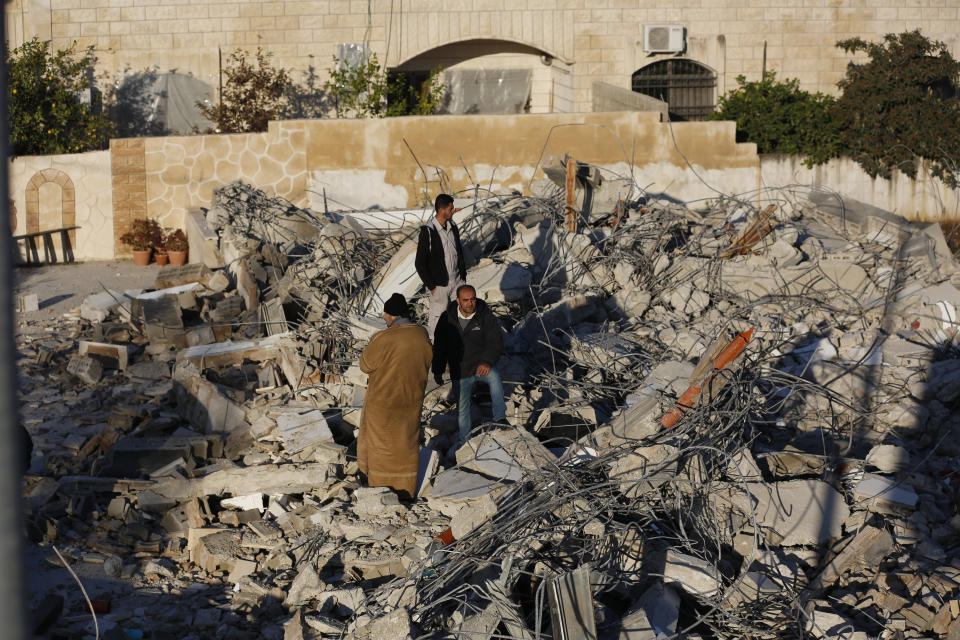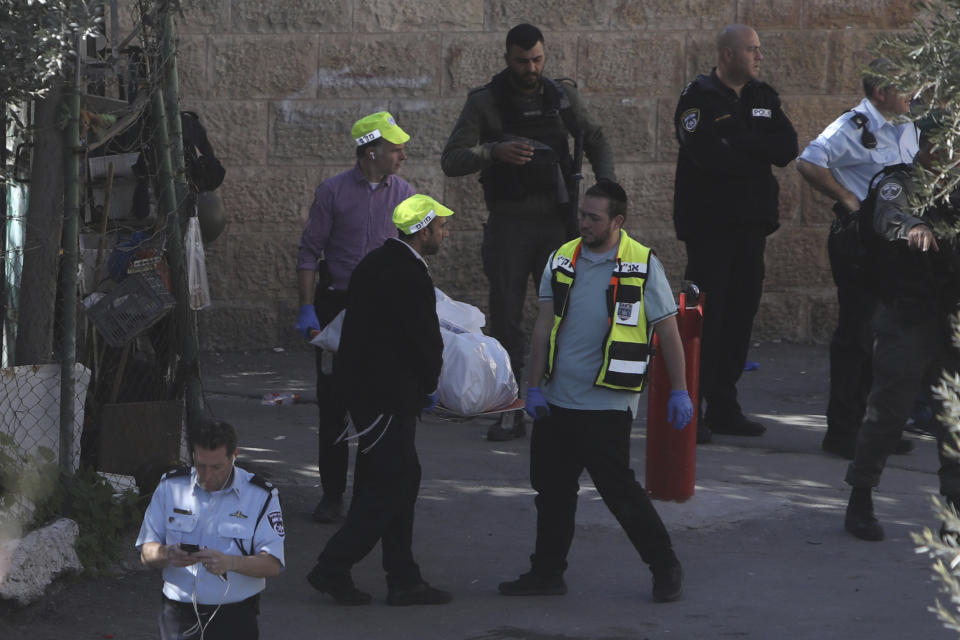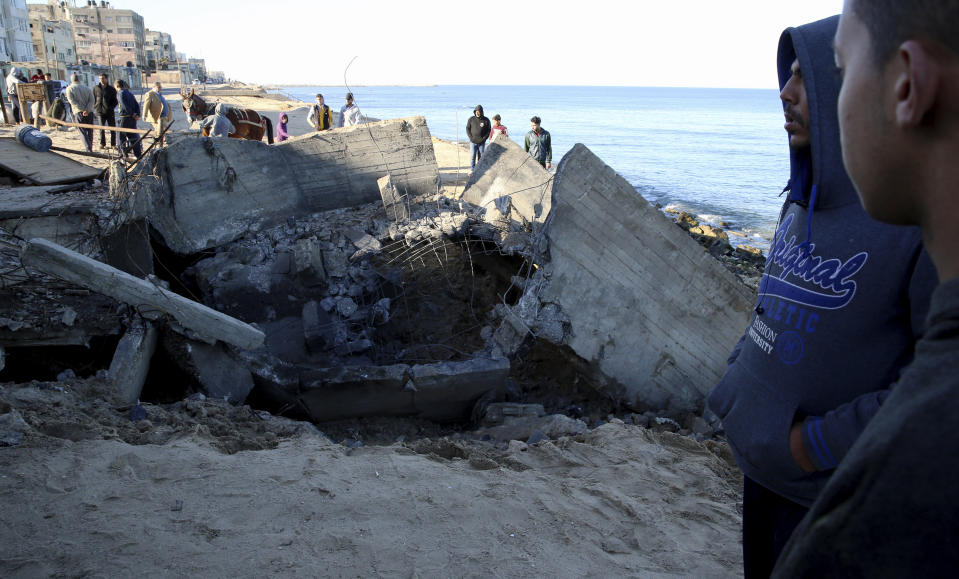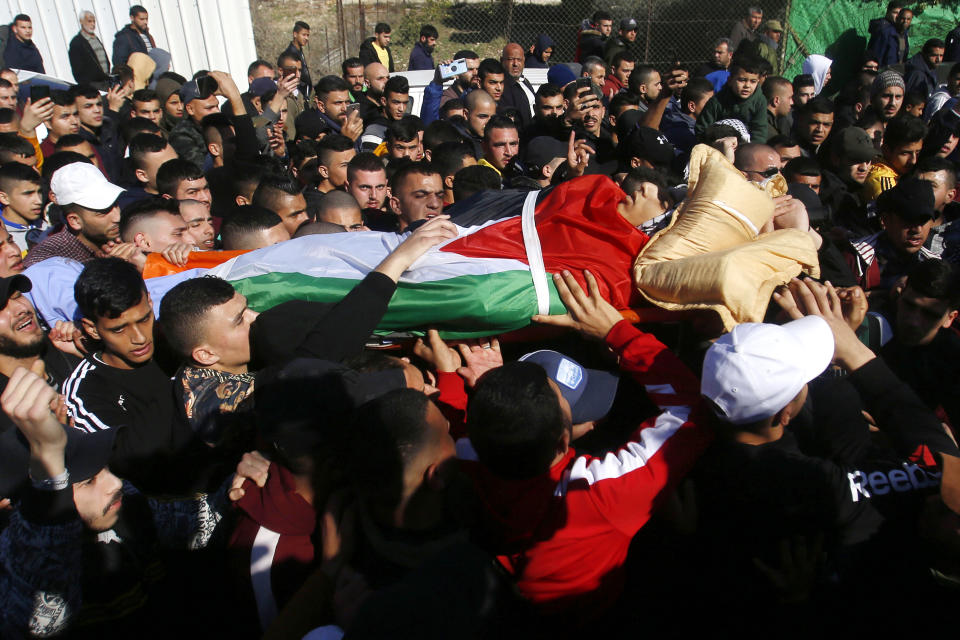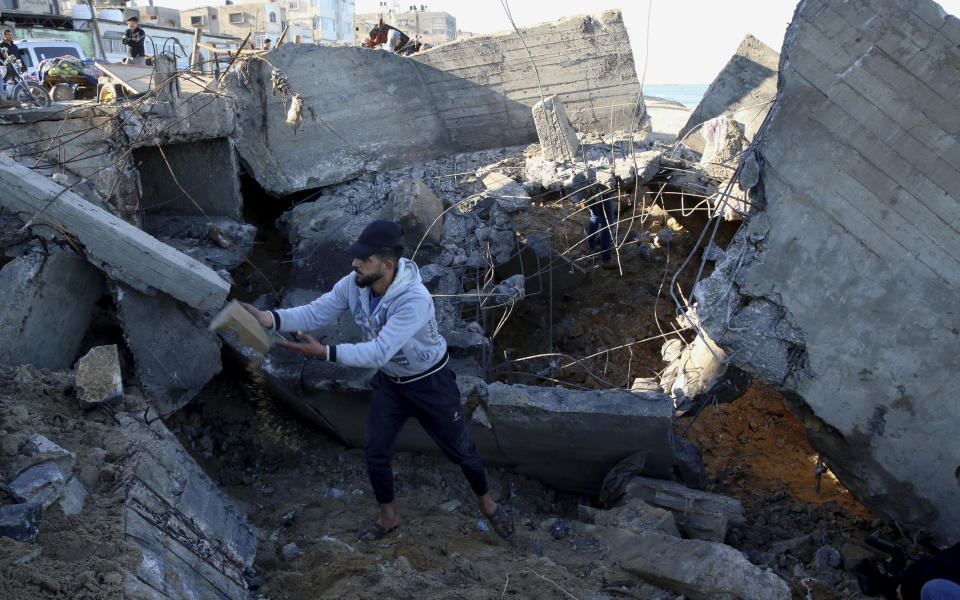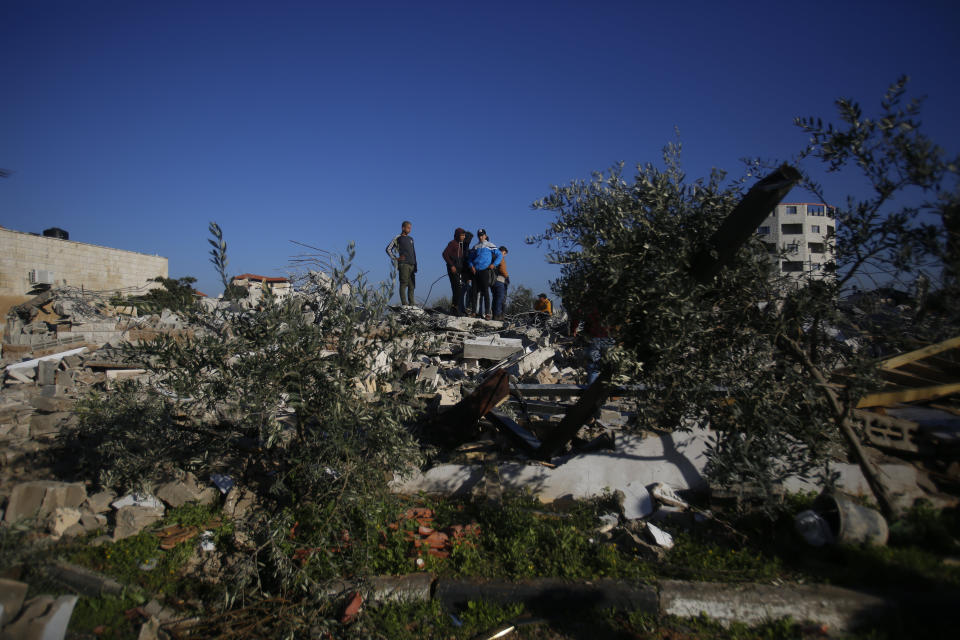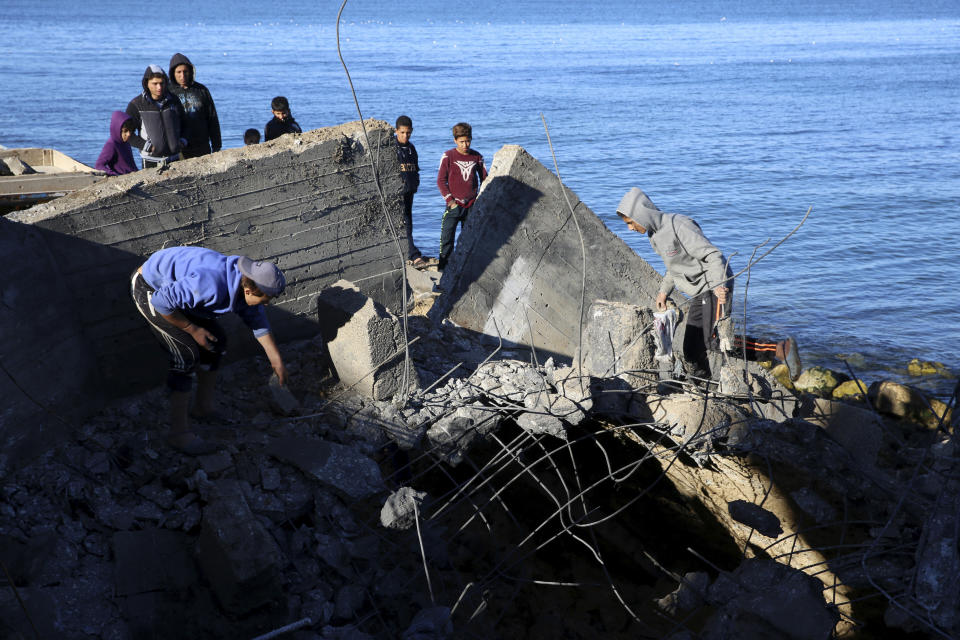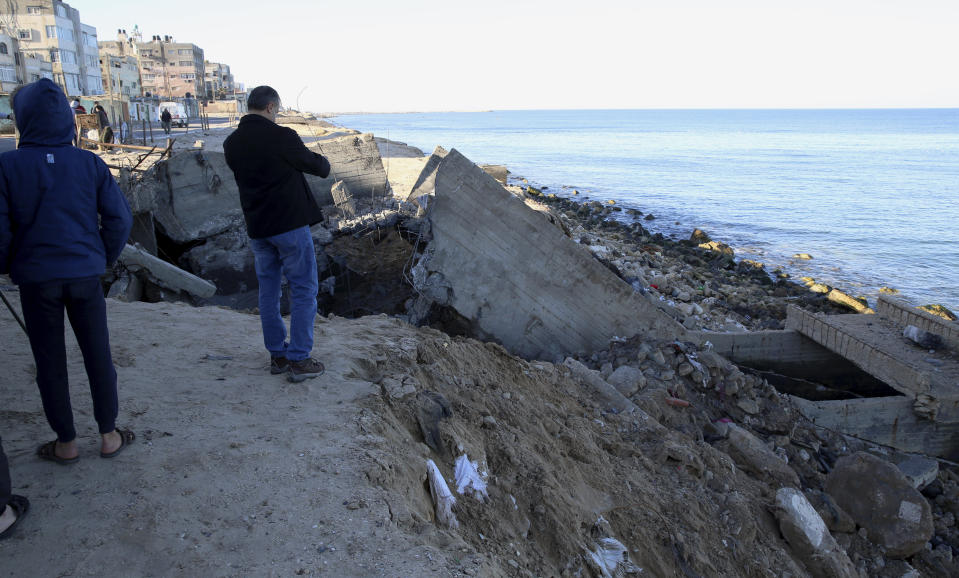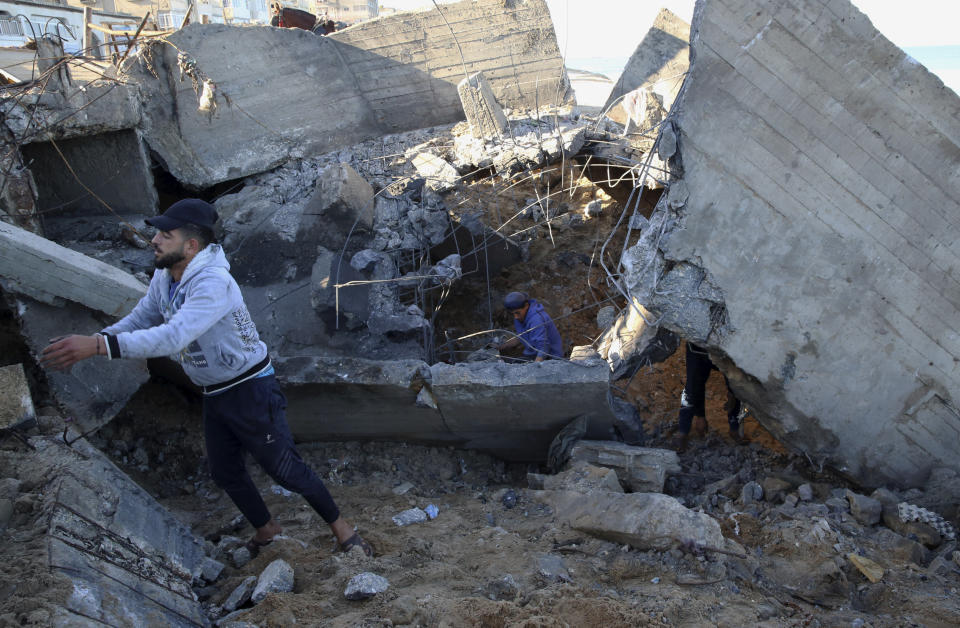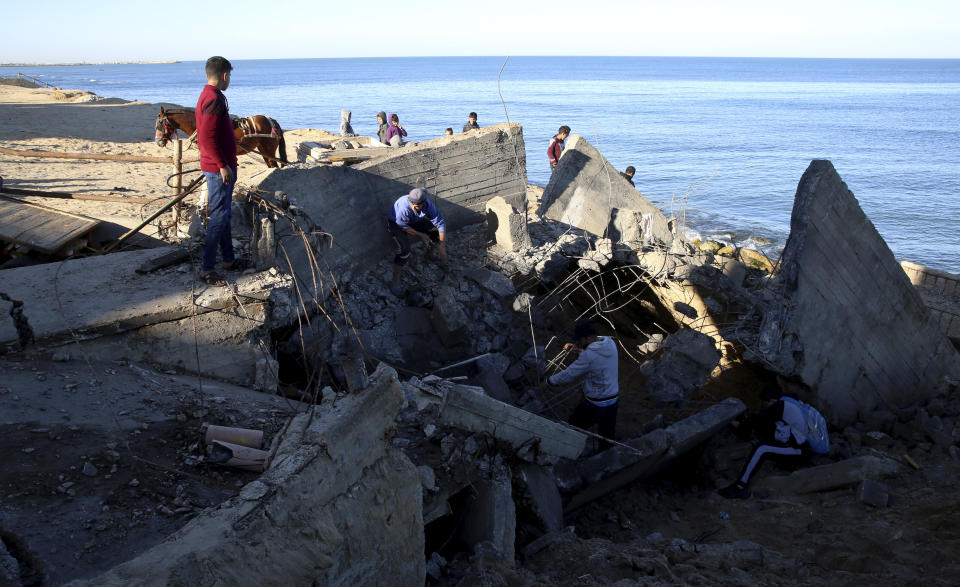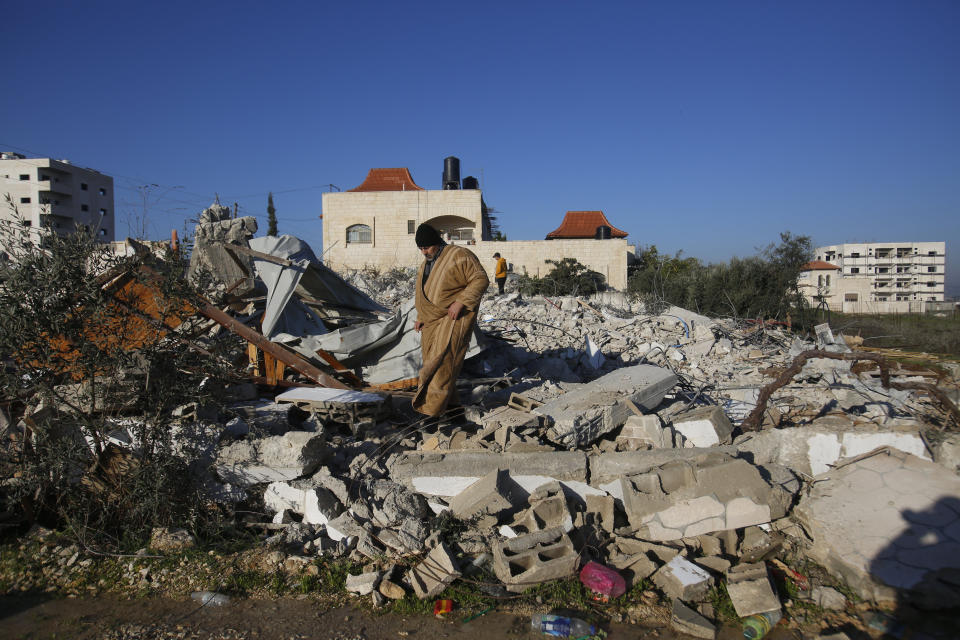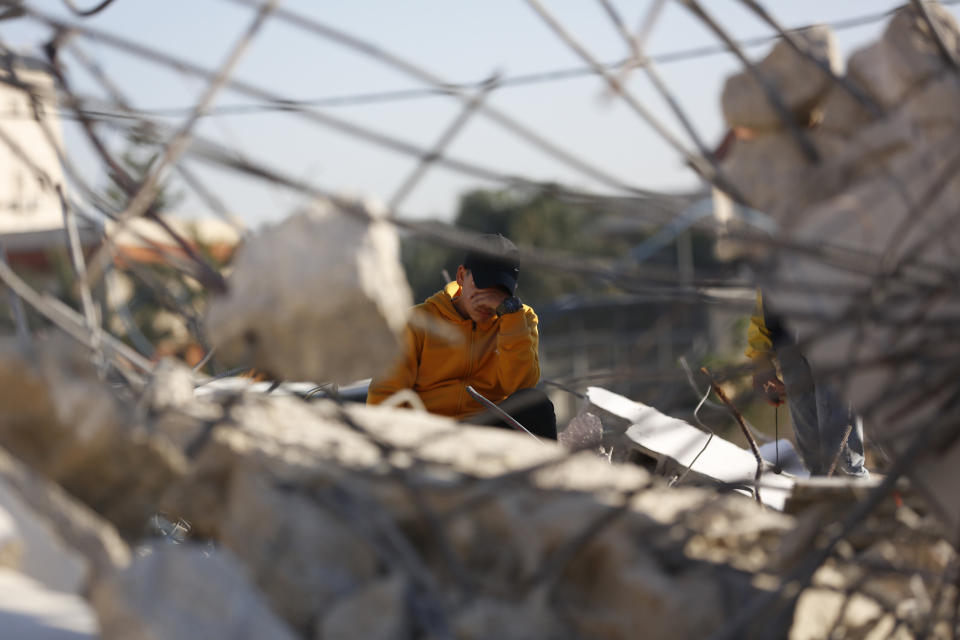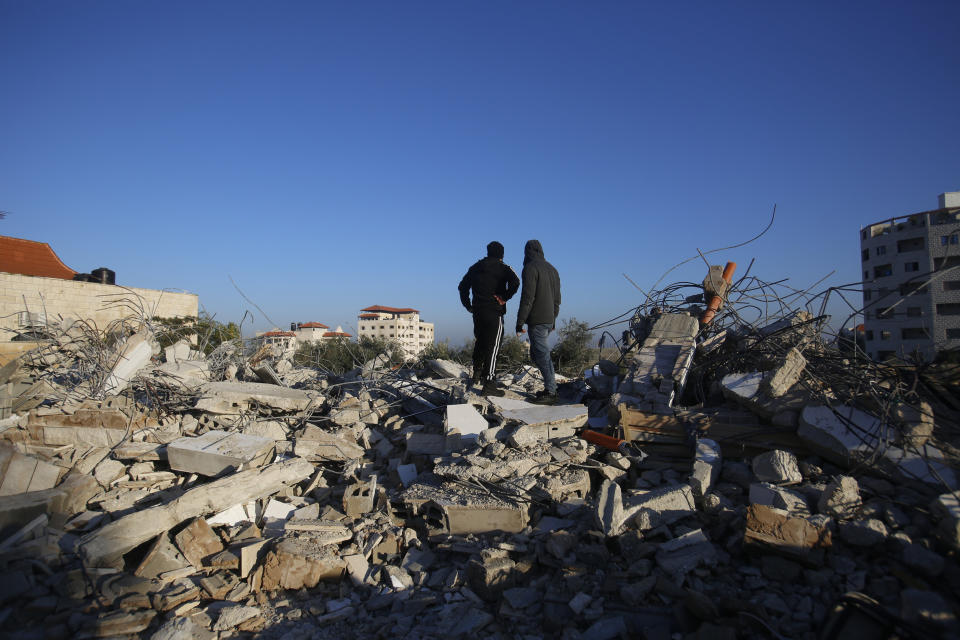Mideast violence flares as anger mounts over Trump plan
JERUSALEM (AP) — Israeli forces killed two Palestinians in clashes in the occupied West Bank on Thursday and a third in Jerusalem after he opened fire at police, hours after a car-ramming attack elsewhere in the city wounded 12 Israeli soldiers.
Tensions have soared following last week's release of President Donald Trump's Mideast initiative, which greatly favors Israel and was rejected by the Palestinians. The violence put the plan on even shakier ground and raised fears of another extended round of fighting in the decades-old conflict.
The plan would allow Israel to annex all of its settlements and large parts of the occupied West Bank — sparking calls from Israeli nationalists to do so immediately. In return it would grant Palestinians limited autonomy in scattered enclaves surrounded by Israel.
The Trump plan "created this environment of tension and escalation,” Nabil Abu Rdeneh, a spokesman for Palestinian President Mahmoud Abbas, told the official Palestinian news agency.
Hamas, the Islamic militant group ruling Gaza, praised the “heroic operations against the Zionist occupation” and reiterated its rejection of the Trump plan. But neither it nor any other militant group claimed responsibility for what appeared to be spontaneous attacks by individuals.
The violence began early Thursday, when a Palestinian motorist slammed his car into a group of Israeli soldiers, wounding 12 before fleeing the scene, the Israeli military said.
Israeli military spokesman Lt. Col. Jonathan Conricus said one of the 12 soldiers was seriously hurt and the others were lightly wounded as they took part in a late-night tour near a popular entertainment district in Jerusalem.
Police later announced that they had arrested the assailant in the West Bank. They identified him as a 25-year-old from east Jerusalem.
Such acts of violence were common in Jerusalem during a low-level wave of violence a few years back, but they had since tapered off.
While it did not claim responsibility for the attack, the Islamic Jihad militant group praised the car ramming as “the beginning of a new confrontation over Trump’s plan.”
Israeli Prime Minister Benjamin Netanyahu lashed out at Abbas, who is opposed to violence and whose forces engage in security coordination with Israeli troops.
“This is not going to help you. Not the stabbings, not the (car) rammings, not the shootings and not the incitement,” Netanyahu said in a video posted online. "We will do whatever is necessary to defend our security, to determine our borders and to ensure our future. We’ll do it with you or without you.”
In the West Bank, meanwhile, Israeli forces shot and killed two Palestinians when clashes broke out while they were demolishing the home of an alleged militant, according to the Palestinian health ministry, which said another five Palestinians were hurt.
Jenin governor Akram Rajoub said one of the fatalities was a 19-year-old student at an academy that trains police officers. The other was a member of the security forces who was shot while standing outside a police station nearby.
Conricus said troops were demolishing the home of a militant allegedly involved in a deadly attack. He said there was a “sizable riot” at the scene by Palestinians who threw firebombs and that a sniper also fired at troops. Conricus said forces responded to the violence with their own sniper fire, killing a Palestinian shooter.
On Wednesday, Israeli forces shot and killed a 17-year-old Palestinian during clashes with demonstrators elsewhere in the West Bank.
In Jerusalem's Old City, an Arab citizen of Israel opened fire at police, lightly wounding one of them, before officers responded by shooting and killing him, the police said. Arab citizens make up around 20% of Israel's population and largely identify with the Palestinians.
The Old City is part of annexed east Jerusalem, which Israel captured along with the West Bank in the 1967 war. The Palestinians want both as part of their future state.
The Trump plan would give them Gaza, chunks of the West Bank and some sparsely populated areas of Israel, all linked together by bridges, roads and tunnels, with Israel in charge of overall security, borders and airspace. It would allow the Palestinians to establish a capital on the outskirts of Jerusalem, most of which would remain under Israeli control.
Another shooting took place near the West Bank town of Qalqiliya, where the military said an assailant opened fire at soldiers, lightly wounding one of them before fleeing. “Troops responded with fire and are currently pursuing the assailant,” the military said.
Conricus, the military spokesman, said Israeli forces are “not trying to escalate the situation while understanding the complexity and sensitivity of the situation." He stopped short of linking the violence to Trump's Mideast proposal.
Meanwhile, there have been a steady stream of rockets and mortar rounds fired out of Hamas-ruled Gaza since the plan was released. Israel has responded with waves of airstrikes. On Thursday, Israel struck Hamas positions in Gaza after three mortar shells were fired at Israel.
There have been no casualties reported on either side in the Gaza violence.
Unveiled last week at the White House with much fanfare, Trump’s plan sides with Israel on the most contentious issues that have bedeviled past peace efforts, including borders and the status of Jerusalem and Jewish West Bank settlements. It attaches nearly impossible conditions for granting the Palestinians their hoped-for state, including the full disarming of Hamas.
The plan was greeted ecstatically in Israel, with Netanyahu vowing to speed ahead with annexing parts of the West Bank. But under pressure from the U.S. administration, he appears to be backing away from that promise, at least until after March elections.
The Palestinians, as well as much of the international community, view the settlements in the West Bank and annexed east Jerusalem as illegal and a major obstacle to peace.
The Palestinians dismissed the Trump plan as “nonsense” and have promised to resist it.
___
Associated Press writers Mohammed Daraghmeh in Ramallah, West Bank, and Joseph Krauss and Isaac Scharf in Jerusalem contributed to this report.


